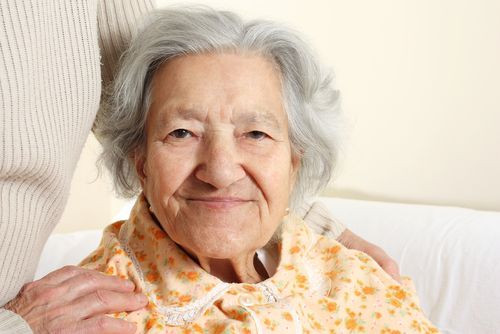American Views On Death: Most Want Right To End Their Own Lives, 72% Have Given Some Thought To Their Own Death

Nearly half of Americans have vicariously faced end-of-life medical issues, including coma or terminal illness, through family or friends. Perhaps this is the reason why two-thirds of Americans (66 percent) believe there are at least some situations in which a patient should be allowed to die, while not quite a third (31 percent) say that medical professionals always should do everything possible to save a patient’s life, according to a new Pew Research Center survey. The new survey on end-of-life decisions reveals that the minority opinion has been steadily growing since 1990, with a nine percent increase in the past eight years alone. Mainly, this swelling number comes from an increasing number of people willing to weigh in on the matter. In an aging society, this fact alone is telling — roughly three quarters of those surveyed have given at least some thought to the circumstances of their own death.
African-Americans and Hispanics More Hopeful?
The share of the total U.S. population over age 65 has more than tripled over the last century, from roughly four percent in 1900 to just under 13 percent in 2012. By contrast, only about eight percent of the world’s population is over 65 years old. The percentage of Americans under 14 is about 20 percent, while 67 percent are between the ages of 15 and 64. Currently, nearly seven billion people live on the planet. During the 20th Century, world population more than tripled from about 1.65 billion in 1900 to 5.97 billion in 1999, though the rate of growth has slowed in recent years to 1.09 percent.
The average life expectancy in the U.S. is 78.7 years. With roughly 41 million people over the age of 65, many are approaching, or have reached and surpassed that average. When asked how long they would like to live, more than two-thirds (69 percent) of Americans cite an age between 79 and 100, with the median ideal life span being 90 years young. When asked about the future likelihood of “the average person” in the U.S. living to at least 120 years, about 25 percent of adults say it will probably or definitely happen by the year 2050.
Interestingly, African Americans and Hispanics are more likely than European Americans or Asian Americans to see radical life extension as a positive development for society. And younger adults are more inclined than those older than 50 to say that radical life extension would be a good thing for society. Meanwhile, Americans debate more pressing concerns.
Who Decides?
Just under 40 percent of Americans, according to the Pew survey, believe parents have a right to refuse treatment on behalf of an infant born with a life-threatening defect, while 57 percent believe the infant should receive as much treatment as possible, regardless of the defect. At the opposite end of the spectrum, though, a substantial majority of Americans — a full 78 percent — believe a close family member should be allowed to make decisions on behalf of a patient who is unable to communicate and nearing the end of life. Meanwhile, 62 percent of Americans have talked about their own end-of-life wishes to someone else, and 35 percent have written down their expectations for that period in their life. Specifically, 57 percent would advise their doctors to stop treatment and allow them to die if they were in a great deal of pain while facing a disease with no hope of improvement. Among those between 65 and 74, nearly three-quarters would want to stop treatment in those circumstances, while only 42 percent between 18 and 29 feel this way. Thoughts about hospice care were not surveyed by Pew, though clearly this is a growing concern in an aging society.
Currently, two-thirds of all hospice care in America takes place at home, though the percentage of patients receiving care in an inpatient facility increased to 27.4 percent. Generally, end-of-life care is provided by a team of health care professionals as well as volunteers. The U.S. hospice movement was founded by volunteers — 400,000 hospice volunteers provided 19 million hours of service in 2012 alone.



























